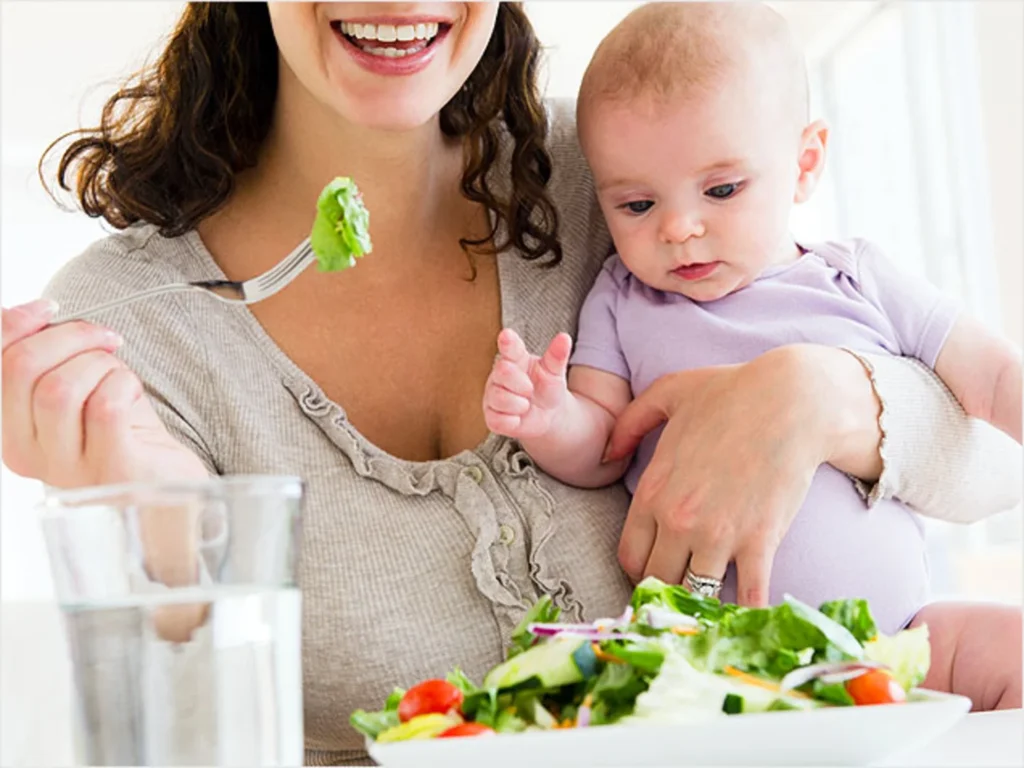Breastfeeding is a natural and healthy way for a mother to feed her baby. In fact, breastfeeding is linked with a number of health benefits for both mom and baby. However, breastfeeding isn’t the only way to provide your baby with milk. You can also breastfeed using formula milk or milk from a nursing bra. Regardless of the milk you choose, there are a few key things that all breastfeeding moms should know. This post explores why breastfeeding is beneficial, how to get the most out of breastmilk, and the best foods to eat while breastfeeding. Along the way, you’ll learn about some of the health benefits of breastfeeding, some tips for feeding your baby breastmilk, and which foods are best for mom as she is breastfeeding. So whether you’re breastfeeding or not, make sure to read this blog!
Why Breastfeed
Breastfeeding is undoubtedly the best way to provide your baby with all the nutrients they need. Not only that, breastfeeding also has a host of other benefits for both you and your baby. Make sure to eat plenty of nutritious foods to support milk production, and nursing mothers lose about one-third of their blood volume which helps in maintaining a healthy weight after giving birth. Not to mention, breastfeeding lowers your risk of breast cancer later in life. So, what are you waiting for? Start breastfeeding your baby today!
Health benefits of breastfeeding
Breastfeeding is a natural and healthy way to feed your child. It has many health benefits, including preventing obesity and type 2 diabetes in children. Additionally, breastfeeding helps to improve mother-child bonding and protect against postpartum depression. If breastfeeding isn’t possible or isn’t going well, there are alternatives that provide similar benefits – like formula feeding. However, make sure to talk to your doctor first before making a decision. breastfeeding is one of the best things you can do for your child’s health and deserves your utmost support.
Get to know the breast milk basics
Breastfeeding is a natural and healthy way to nutrition your baby. However, it’s not easy, and breastfeeding moms need to be prepared for a lot of challenges. Make sure to drink plenty of fluids while nursing so you don’t become dehydrated or lose weight- which can be harmful to your baby. Breast milk is the best food for your baby, so it’s important to aim to eat a variety of foods that are good for their development. Foods that are high in calcium help to form strong bones while breastfeeding infants breast milk exclusively. The right balance of proteins and carbohydrates will fuel your breastfeeding journey successfully.
What foods should breastfeeding moms eat?
Breastfeeding is an amazing journey that provides many benefits for both mom and baby. One of the most important of which is the intake of healthy foods. breastfeeding moms should eat plenty of fruits and vegetables to stay healthy and nourished. Dairy products are also a good source of calcium, which is important for nursing mothers. Make sure to get enough sleep – both breastfeeding moms need 8 hours per night! Avoid sugar-sweetened drinks and make sure to include enough protein in your diet. breastfeeding moms should also avoid caffeine and alcohol, as they can be harmful to both mom and baby.
Do I need extra calories while breastfeeding?
Breastfeeding is a wonderful experience for both mother and baby. However, breastfeeding can be challenging if your diet isn’t adequate. If you are struggling to find the right food for your breastfeeding baby, consult a health professional or lactation consultant. They will be able to advise you on what foods are best suited for nursing mothers and help guide you in nutritional intake. In terms of calories, breastfeeding moms need the same amount as non-breastfeeding mothers – this means that they should consume healthy carbohydrates and proteins along with plenty of fruits and vegetables. Breads, pasta dishes etc., make great choices because they offer plenty of nutrients and calories which breastfed babies need in order to grow properly.
How much fluid do I need while breastfeeding?
Breastfeeding is a natural and healthy process, but it’s not easy. Mothers need to drink plenty of water and fluids in order to milk production up. However, breastfeeding mothers don’t have to deprive themselves of food – balance is key! To breastfeed successfully, nursing mothers should drink around 12-16 glasses of water per day. Foods that are high in water content include fruits, vegetables, and soups. Make sure you eat enough carbohydrates too – they help lactating moms absorb the liquids better from food intake.
What about a vegetarian diet and breastfeeding?
There is no wrong or right answer when it comes to breastfeeding mother’s diet. However, a vegetarian diet is not recommended for breastfeeding moms as it lacks important nutrients such as vitamin B12 and calcium. It’s best to eat a balanced and varied diet that includes plenty of fruits, vegetables and whole grains. If you are breastfeeding, make sure to ask your health care provider about specific dietary recommendations for breastfeeding mothers.
Could my diet cause my baby to be fussy or have an allergic reaction?
There is a lot of confusion surrounding diet during breastfeeding and many moms-to-be are afraid that their diet could be causing problems for their babies. However, there is no evidence to suggest that a particular diet is better than any other when it comes to nursing newborns. What’s important, however, is that breastfeeding mothers eat plenty of fruits, vegetables and whole grains as well as protein. They should also avoid sugary drinks, processed foods and saturated fats. And last but not the least – make sure food allergies aren’t a concern by ensuring the baby avoids foods such as cow’s milk, soy products etcetera. Nutrition while breastfeeding plays an extremely critical role in both mother and baby health!
Foods to avoid while breastfeeding
Breastfeeding is not just a physical act – it’s also an emotional one. When you’re breastfeeding, it’s important to avoid food sources that could be harmful to your baby. Some of the most common foods to avoid are caffeine, fatty foods, and alcohol. Make sure you’re eating a balanced and nutritious diet that includes plenty of nutritious foods for both you and your baby. Try to breastfeed in public as much as possible, without feeling pressured to do so in secret. And last but not least, make sure you’re eating enough nutrient-rich foods to keep you healthy and lactating as well.
What foods and drinks should I limit or avoid while breastfeeding?
When breastfeeding, it is important to remember that foods and drinks with caffeine, alcohol and unhealthy fats can affect milk supply negatively. Fruits and vegetables are also a good option to include in your diet while breastfeeding as they are high in antioxidants and nutrients. Make sure you drink plenty of water while breastfeeding as dehydration can lead to milk production problems. Another supplement people might want to consider when nursing is milk thistle – this herb has been shown to be effective at reducing the risk of breast infection, improving lactation efficiency, helping build breast milk fat stores, etc.
Consider taking supplements
Breastfeeding is an amazing experience and a natural way to provide nutrition for your newborn. However, breastfeeding moms need to take extra care to ensure they’re getting all the nutrients their baby needs. This includes taking supplements to ensure they’re getting vitamin D and iron, which are both essential for breastfeeding mothers. Make sure to talk to your healthcare provider before starting any new supplement regimen – it’s always best to consult with a professional first! In the meantime, breastfeeding moms should consider taking supplements to ensure they’re getting the most important nutrients for their baby. Doing so can make breastfeeding a more fulfilling experience and help to protect your little one’s health.
Breastfeeding and weight loss
Breastfeeding is not just a great way to feed your child – it’s also a great way to lose weight. Nursing also helps make milk supply increase, which means fewer visits to the breast pump in the future! Not to mention breastfeeding burns a lot of calories, so breastfeeding is an excellent diet plan for mothers who are trying to lose weight. Breastfeeding also helps reduce weight and keep your body healthy during your pregnancies. So, if breastfeeding is a priority for you and you’re looking to lose weight while nursing, don’t hesitate to give it a go!
Frequently Asked Questions
Can I drink alcohol while breastfeeding?
While there is no universal answer, many breastfeeding mothers find that it’s best to abstain from drinking alcohol while nursing. Some of the potential health concerns include dehydration, sleep deprivation, and disrupted feeding patterns. If you do decide to drink while breastfeeding, make sure to limit yourself to low levels and drink in moderation.
Is it okay to add sweeteners to my diet while breastfeeding?
While it’s okay to add sweeteners like Stevia, Monk Fruit or Honey to your diet while breastfeeding, it’s best to avoid artificial sweeteners and foods with high fructose corn syrup. These are harmful for both mother and child. Besides, breast milk is a healthy source of nutrition for your baby, so it’s better for them not to get the added sugar from breast milk.
Conclusion
Breastfeeding is a natural and healthy way to provide nutrition for your baby. Not only is breastfeeding healthy for the baby, but breastfeeding moms also lose weight faster when breastfeeding. In addition to breastfeeding, make sure to eat foods that are high in calcium and vitamin D to support your breast milk production. If you are nursing and have any questions or concerns, please feel free to leave a comment below and one of our lactation experts will get back to you.


